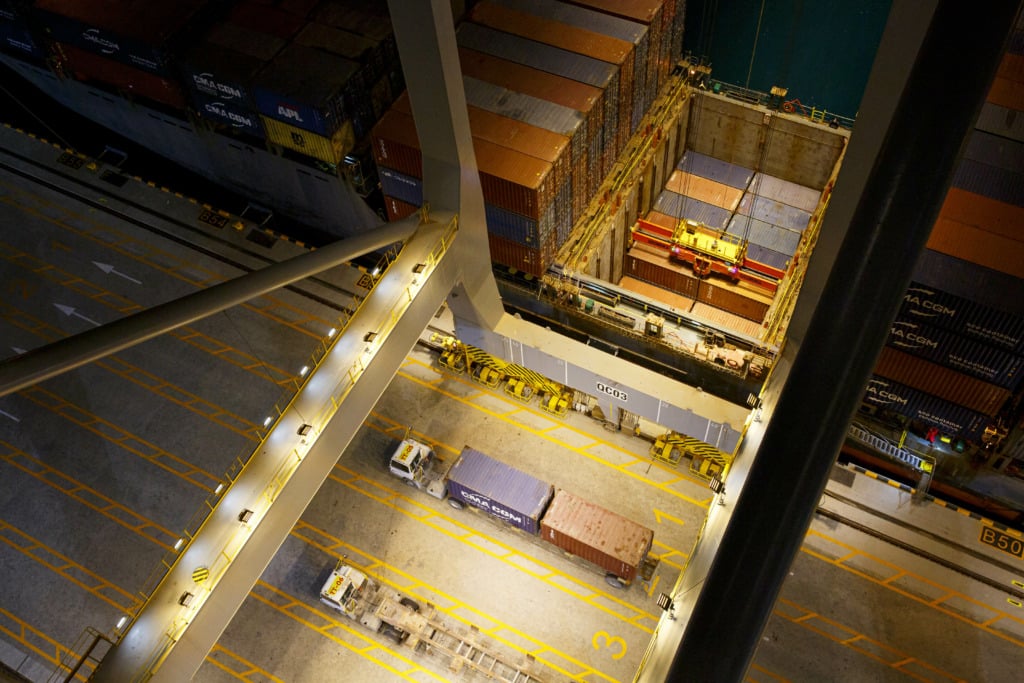PAFTRAC launches 2022 CEO Trade Survey

[ad_1]
Recent global crises, including the coronavirus pandemic, supply chain disruptions, war in Europe and a looming recession have highlighted Africa’s economic vulnerabilities. The continent still conducts most of its trade with external partners and remains exposed to shocks that occur away from its shores.
It is believed that deepening intra-African trade is one way to reduce the continent’s vulnerability to external shocks, while boosting job creation and improving livelihoods. The launch of trading under the Africa Continental Free Trade Agreement (AfCFTA) in January 2021 has strengthened hopes of seamless cross- border trade in Africa, along with all the attendant economic advantages.
The Pan African Private Sector Trade and Investment Committee (PAFTRAC), an advocacy group that champions issues of the private sector, conducted a survey of business leaders on the continent to assess their expectation for the coming year and ascertain their views of and readiness for the full implementation of the trade agreement.
The findings of the 2022 survey were released at a virtual event on 13 October 2022. Presenting the findings, Patrick Utomi Jr explained that the survey was completed by more than 800 chief executive officers of companies operating in Africa. In all, respondents answered 66 questions covering their views on the AfCFTA, how it would impact trade in general and the specific sector in which they operate.
“The objectives of the survey are to advocate for private sector views, inform policy reforms and shape the future of African trade through data driven results,” he stressed. About 80% of the survey participants were male and while all regions in the continent were represented, West Africa had the largest number of respondents.
Agriculture and agribusiness was the dominant sector among participants, followed by manufacturing, education and financial services. The 23% of survey respondents engaged in agriculture was a significant increase on last year, when the number was 12.6%.
Optimism about AfCTA’s effect on trade
Some 50% of respondents said they were optimistic about the economic outlook for 2022 and 2023, a significant decrease from last year, when 93% were positive about the future. This can be traced to the headwinds in the global economy, including rising inflation, the Ukraine crisis and and the increasing debt burdens that African economies face.
However, 93% felt that the AfCFTA would have a positive impact on trade, higher than last year, when 86% reported the same feeling. Respondents felt that Southern Africa and Eastern Africa were best in terms of ease of doing business. Ghana. Kenya, and Mauritius were ranked as most favourable to trade and with the friendliest business environments. Overall, 73% of respondents said that it was not easy to do business in Africa, reflecting an overarching concern about business processes on the continent.
Small and medium-sized enterprises were dominant, mirroring their dominant role in driving business on the continent. Of the survey participants, only 22% had earnings of more than $1m annually while a majority had been in business for more than five years and only 10% employed more than 500 people.
There were widespread concerns about access to relevant information, with 50% responding that they did not have sufficient information on how to access the AfCFTA, which was nevertheless less than last year, when the figure was 62%.
Respondents generally wanted more information to be made readily available and expressed a desire for a one-stop shop where all information could be hosted. While this was the major concern for 40% of all respondents, disaggregated figures show that half of the owners of import-focussed business were concerned about transport and logistics, while 59% of export-oriented businesses listed access to information as their top concern.
Other concerns that were reported were information on trading partners and counter-party payment risks, a legal framework to legitimise the largely informal cross-border trade and access to electronic cross-border payment systems. Businesses operating in the manufacturing sector, in particular, wanted more favourable coverage of African products, stronger support from their governments and policies aimed at promotion exports.
Based on the findings, Utomi recommended that more must be done to make information more easily accessible, to secure market access and to facilitate trade, especially for SMEs, who continue to dominate the business environment in Africa. They will also need access to long-term financing so they can avoid the burden of high interest rates.
A lot will also depend on how governments can facilitate free movement of goods and people, which is critical to a free trade area. Governments will need to invest in roads and other infrastructure necessary for trade, while businesses will be tremendously boosted by cross-border payment systems, the formalisation of cross-border trade customs facilitation and help with quality packaging.
Benefits of increased intra-African trade
Kicking off the panel discussion after the presentation, Professor Patrick Utomi, Chairperson of PAFTRAC, said increased intra-African trade could inoculate the continent against shocks even in a globalised world. He referred to the shortages of grain and fertiliser occasioned by the war in Ukraine and said that through cross-border collaboration areas with capacity could be identified and assisted to boost production and secure supplies for the continent.
Technology could be deployed to address information asymmetry, he suggested, and called for the lessons from the report to be the foundation for further engagement as the continent moves forward with the free trade area. “We must not fall back if global conditions ease. We must see this as a strategic thing for Africa to strengthen our hands in international trade,” he emphasised. Professor Utomi said members of PAFTRAC were pleased that their views were now being actively sought, in contrast to what prevailed previously when governments would negotiate without any support from the private sector.
With SMEs at the table, it is now possible to explore closer cooperation across borders and create aggregate capabilities that can be harnessed into a greater share of global trade. He hoped that all efforts will be made to ensure that Africa can leapfrog and become more competitive soon.
The state of the AfCFTA
Cynthia Gnassingbe-Essonam, Senior Advisor to the AfCFTA Secretary General, explained that the AfCTA is a complex agreement that covers goods, services, the digital economy, investment, competition policy and women and the youth. Even so, all but one of Africa’s countries have signed up to it, while 44 have ratified it and deposited the instruments of ratification.
The implementation of the agreement is in two phases. The first phase covers trade in goods and services, rules of origin, customs and trade facilitation and trade in services including tourism, finance, transport and business services. Dispute resolution mechanisms will also be part of the first phase. The second phase will cover investment, competition policy, digital trade, intellectual property rights and women and youth, which is a world first in a trade agreement.
“This is an innovation from the African continent because this is the first time that we have a trade agreement that actually embeds a protocol for the youth. And this is because the private sector in Africa is largely informal and mainly driven by women and the youth so it is important for us to have an AfCFTA that is as inclusive as possible and that the benefits do not only accrue to the big corporations,” she said.
According to Gnassingbe-Essonam, while some of the negotiations are at an advanced stage, others are merely at the design stage. However, on the rules of origin, there is agreement on 88.7% of the tariff lines between state parties and companies in eight countries are ready to begin trading on the terms of the AfCFTA.
Agreement is yet to be reached on clothing and textiles, and the automotive industry. Other operational tools, such as a tariff book, a manual of rules of origin and the required trading documents have been made available to state parties. A mechanism to report problems has also been put in place, while the Pan African Payment and Settlement System (PAPSS), developed with Afrexim Bank, is ready to be deployed. To cushion countries and industries that will be adversely affected by the liberalisation of trade, Afrexim Bank has made a $1bn fund available.
Hamady Soma Ba, from the he International Islamic Trade Finance Corporation (ITFC), pointed out that with at least half of its membership on the continent, Africa is a critical region for the ITFC, which is focused on how it can help make the AfCFTA a success.
Through interventions in trade finance and trade development, it is seeking to support the process. A private-sector division has been set up to raise and disburse the funding needed to close the trade finance gap of between $88bn and $100bn that Africa faces annually. African companies typically struggle to raise the funding they need, but Soma Ba said that organisations like his can raise that money, together with other development finance institutions, for onward disbursement to where it is needed most.
The organisation also works to bridge the gap between SMEs and financial institutions through technical assistance for SMEs in streamlining their finance pitches and by helping funders to better understand African SMEs in the right context. This helps to reduce the rates of rejections that African SMEs face as they seek financing to scale up their operations.
Through partnerships with Afrexim Bank, the ITFC is conducting research to assess the impact that AfCFTA will have on African economies, while also providing training for SMEs to help them access markets, distribution channels and financing. It is also helping to open up Africa-Arab commercial bridges, especially in the areas of pharmaceuticals and agriculture.
A rules-based order
Pren-Tsilya Boa-Guehe, Google’s Manager for Pan-African Institutions, expressed optimism that despite the current global headwinds, Africa retains its potential for growth, including in technology. Over the next five years, with 300m more people expected to connect to the internet, Africa can add over $180bn to its GDP if it can properly harness the opportunities that come with it.
Google is committed to assist the process through the provision of digital skills. It has already trained 6m people out of the 10m target it set for itself. The tech giant has also committed to spending $1bn to build enabling infrastructure for a more connected Africa. In 2021, African startups raised a combined $400m in funding, a figure that has already been surpassed this year. Among these are financial technology companies that are expanding inclusiveness and enabling payments and digital services. Policy makers will need to support the growth of these startups with the right regulations.
“Technology is just a tool that can help us achieve economic growth. We believe that African economies can be come digital sprinters and the AfCFTA is going to be really important in helping us to be able to do that,” she said.
Boa-Guehe observed that digitally-led growth needs a regulatory eco-system that promotes competitiveness, and thus the competition protocols of the AfCFTA will be essential to the success of the initiative. Tax regimes will have to be in line with international best practice and not to the disadvantage of SMEs.
Dr Amany Asfour, President of the Africa Business Council, noted that trade within Africa still accounts for only 16% of total trade and this will be enhanced by enabling free movement of people and goods across the continent. She suggested that countries could prioritise business visas so that entrepreneurs could move freely around the continent. Information will also be key to the implementation of the free trade agreement, observing that “many of our people in West Africa are not aware of what is happening in East Africa we don’t have knowledge of products in the continent so one of the major steps we are taking at the Africa Business Council is to do a mapping exercise to see what’s available in the continent and what we are currently importing”.
The organisation is also focused on its advocacy for value addition and how expertise can be linked to promote industrialisation. She called for more incentives for SMEs so that local investors can flourish. For example, if governments were to reserve 40% of all procurement for local SMEs, there would be tremendous impact on their growth and especially on the incomes of women and the youth who are predominantly active in the SME sector.
Steps for success
Cynthia Gnassingbe-Essonam said that the AfCFTA Secretariat is working on an engagement strategy to mobilise the private sector as a key driver for the success of the free trade agreement.
“Specifically, this will ensure that they have a thorough understanding of the AfCFTA agreement, their ownership and participation in the implementation process. It will also entail educating the MSMEs about what the AfCFTA means to them and their businesses improving their competitiveness and operational capabilities through skills development and also through targeted support programmes,” she underscored. It would also facilitate dialogue between private and public sector stakeholders and encourage them to align with international best practices and undertake key reforms. With the support of MasterCard, the Secretariat has identified some priority areas for investment, including agriculture, pharmaceuticals, automotive, transport and logistics, which could add $11bn in production, $4bn in trade and 700,000 jobs, 50% of which would go to the youth. Another initiative is the African Trade Gateway, a digital platform developed in partnership with Afreximbank, which will provide trade information and connect businesses to one another.
Hamady Soma Ba noted that private capital tends to avoid uncertainty and unfortunately there is a lot at the moment, which is complicating access to finance for SMEs on the continent. This, he said, requires ITFC and other multilateral financial institutions to play a greater role and leverage their ability to raise capital and direct it towards supporting SMEs.
Currently, the ITFC is working with Afrexim Bank on such a facility, using their preferred credit status to mobilise the needed funding. He noted that while SMEs were likely to bear the brunt of the current uncertainties, there are grounds for optimism.
“The capital is there; what we need is for the MDBs to work hand in hand with us to tap into the capital flow that is sitting on the sidelines to support SME as we go through these challenging times,” he stressed.
[ad_2]
Source link







